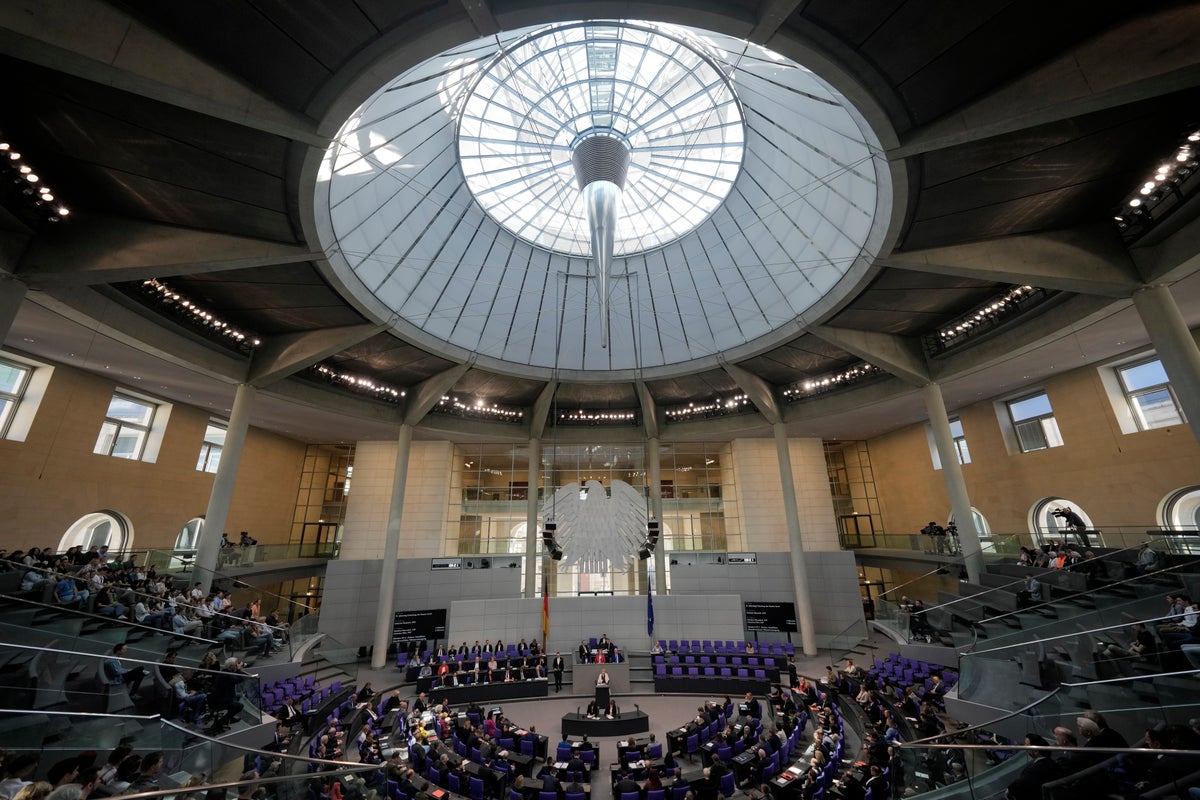
A German opposition party on Wednesday launched a legal challenge against an electoral reform designed to reduce the size of the country's increasingly bloated parliament.
The Barvarian center-right Christian Social Union is one of two opposition parties that have been vehemently critical of the legislation, which lawmakers approved in March, and see their future place in parliament at risk. They accuse Chancellor Olaf Scholz's three-party coalition of cobbling together constitutionally dubious rules to favor itself.
The party's general secretary, Martin Huber, said it has filed a complaint to Germany's Federal Constitutional Court against the “undemocratic, anti-federalist, manipulative and unconstitutional” legislation.
Parties across the political spectrum agree that parliament's lower house, or Bundestag, has too many members, but they have disagreed for years on what to do about it.
The chamber currently has a record 736 members and the reform reduces that number to 630. Germany's next general election is due in the fall of 2025.
In German elections, every voter gets two votes: one for a directly elected candidate, the other for a party list.
Each of the country’s 299 constituencies elects a legislative representative directly by a simple majority vote. At least 299 further seats go to candidates elected on party lists. The list votes are critical because they determine the percentage of seats each party wins.
At present, if a party wins more seats via the direct vote than it would get under the party vote, it keeps the extra seats — but more are added for other parties to ensure their proportional vote is reflected accurately.
Because Germany’s traditional big parties have continued to dominate the direct vote even as their overall support has declined, that can result in the Bundestag having many more lawmakers than the minimum 598.
To share in the division of seats, a party must win 5% of the party list vote or have at least three directly elected lawmakers.
Under the new system, parties will have to win 5% of the overall vote to share in the division of seats, and the three-winner option will be eliminated. As there will be no extra seats, some candidates could win their constituency vote but still miss out on a seat in parliament.
That has incensed the CSU, which is part of Germany's main center-right opposition bloc but runs only in Bavaria and holds nearly all that state’s 46 directly elected seats. It also has infuriated the Left Party, which fell short of 5% support in the 2021 election but has a full parliamentary group because it emerged with three directly elected lawmakers.
President Frank-Walter Steinmeier signed the reform into law last week.
On Monday, the Venice Commission — an advisory group on constitutional matters to the Council of Europe human rights body — issued an opinion stating that, although the measure lacks cross-party support, it is “largely in conformity” with international electoral standards.







